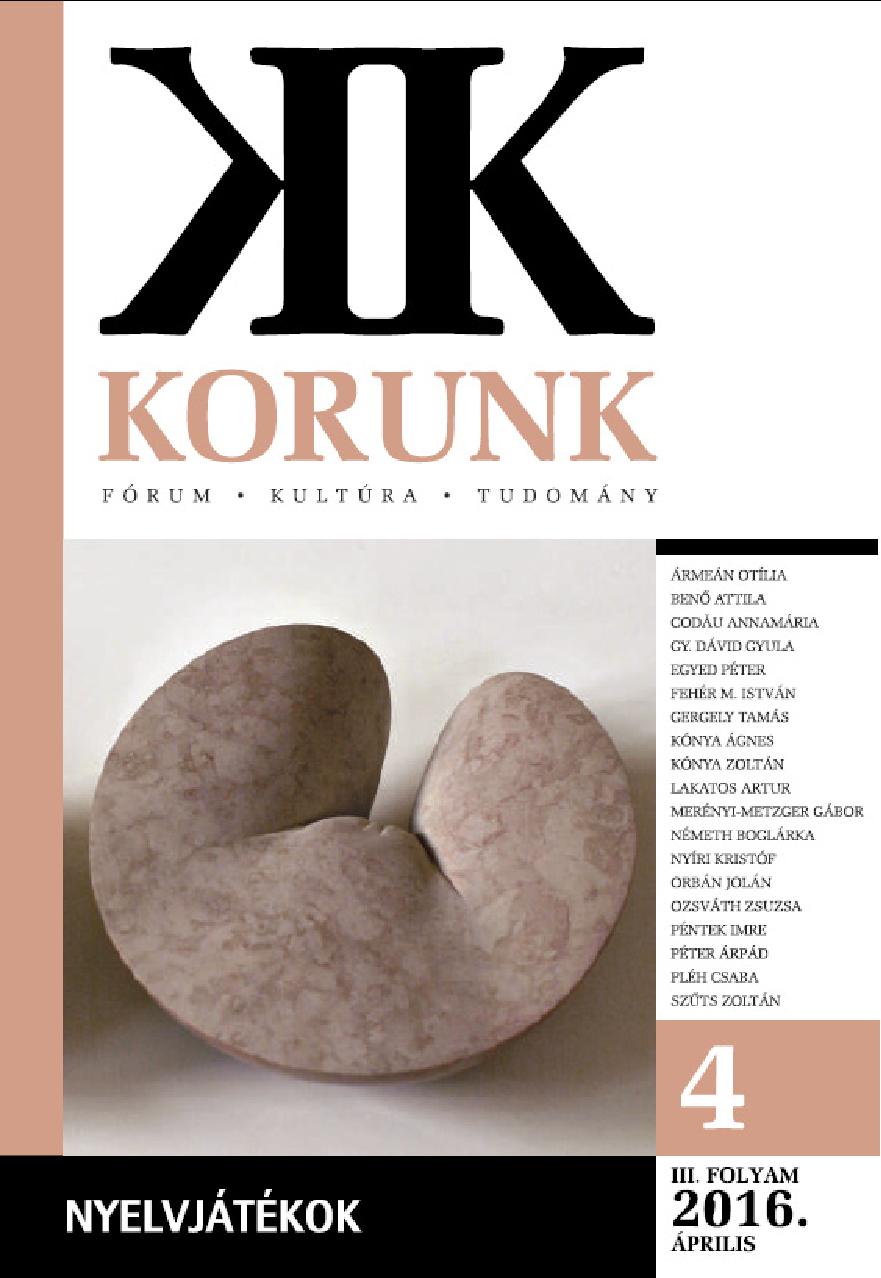Arcjáték és gesztus
The Play of Gestures
A Conservative Experiment in the Philosophy of Language
Author(s): Kristóf NyíriSubject(s): Philosophy, Special Branches of Philosophy
Published by: Korunk Baráti Társaság
Summary/Abstract: The adjective “conservative” in the subtitle of this paper is intended to carry a double meaning. First, it indicates that my approach within the philosophy of language is entirely old-fashioned: I do not take language to be as it were a boundless game, and certainly not to be formative of reality, but rather to be a depiction of the latter. Secondly, I believe that my views on how language relates to reality have implications, also, in social philosophy: they imply the soundness of some kind of a conservative world-view.The paper is divided into four sections.In the first one, “Wittgenstein as a philosopher of common sense”, I argue that while the later Wittgenstein is widely held to be a relativist, indeed a constructivist, he was, all appearances to the contrary, a realist, a fact becoming almost conspicuous in his late-1940s manuscripts. The second section, “The visual origins of language”, takes up a theory that originated with Plato’s Cratylus and has since again and again surfaced. In the third section of the paper, “Depiction and reality”, I argue that our knowledge of the external world, based on what our senses, in particular our eyes, tell us, is reliable knowledge. The concluding section of the paper, “Language use and the conservation of knowledge”, puts forward a new explication of conservatism. I suggest that what conservatism in any historical age primarily strives to conserve is the knowledge required to preserve the survival chances of future generations. Such knowledge relies on an inherited stock of words, and to a great extent consists of mental and physical images, themselves resistant to change.
Journal: Korunk
- Issue Year: 2016
- Issue No: 04
- Page Range: 3-9
- Page Count: 7
- Language: Hungarian

